#Orzammar
Text
Something I hadn't considered until now is how brutal the mission to kill Jarvia and most of the Carta in Orzammar is for Brosca. I'll never forget the emotional gut punch that was having to fight and kill Leske, who is probably only true friend Brosca has ever had in all their life (I remember desperately searching if there was a dialogue option or something to let him live but there is none), but I also just thought that Brosca must have known most, if not all of those Carta members that we fight through the mission.
And knowing how the casteless are pretty much cut off from the rest of Orzammar's society and most are forced into a life of crime, Brosca must have known and possibly have been friends or at least care for for a lot of the Carta members, and also possibly have worked with them often under orders from Beraht and Jarvia.
Then after becoming a Warden, returning to Orzammar and under orders from either Harrowmont or Bhlen, they have to go to their old home in Dust Town and kill Jarvia (who was alledgely planning to use her growing power in Orzammar to force the Assembly to recognize the rights of the casteless), Leske and pretty much everyone else they knew during their many years growing up and while being a part of the Carta.
Just another bit of tragedy for Brosca's story.
#dragon age#warden brosca#brosca#dragon age origins#orzammar#dragon age dwarves#dragon age meta#dragon age lore#dwarf commoner#dwarf commoner origin#beraht#jarvia#rica brosca#dust town#dao#da:o#da: o#da o#da origins#aeducan#harrowmont#bhelen aeducan#pyral harrowmont
247 notes
·
View notes
Photo

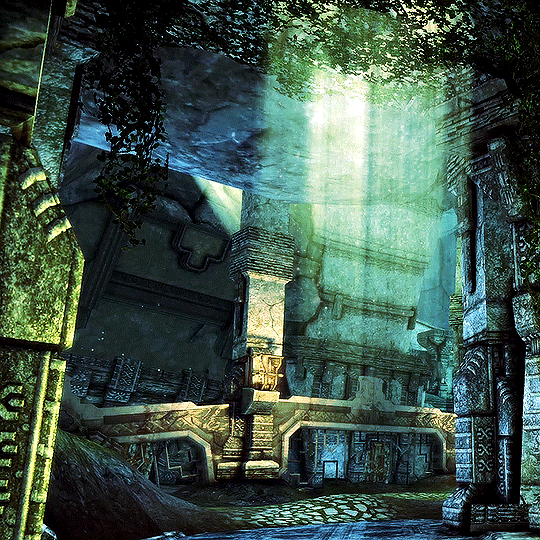
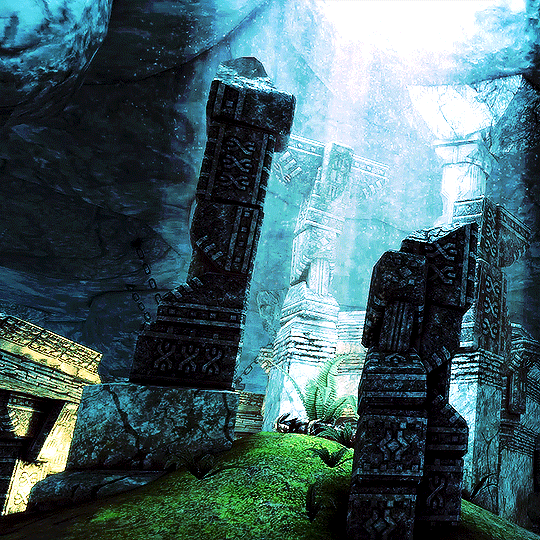
DRAGON AGE: ORIGINS — ♡ dev. bioware
the deep roads // cadash thaig
#dragonageedit#daedit#gamingedit#gamingscenery#dailygaming#dragon age origins#orzammar#the deep roads#dragon age#vgedit#.gfx
2K notes
·
View notes
Text

He was a second son who took the throne of Orzammar. Do you honestly believe he did nothing underhanded?
They truly are their father's sons.
#dragon age#dragon age fanart#dragon age bhelen#dragon age trian#dragon age aeducan#aeducan#orzammar#hero of ferelden#dwarves
157 notes
·
View notes
Text

So I was in Cadash Thaig doing Shale’s companion quest and this happened.
#he looks so kingly#how dare he#alistair theirin#dragon age#dragon age origins#dragon age alistair#orzammar#cadash#cadash thaig#dragon age shale#side quests#king alistair
110 notes
·
View notes
Text

CONFESSION:
I was 17 when Origins came out. I never understood why people complained about about the deep roads being too big. I am now an adult and I recently replayed Origins between jobs. And I now find the Deep Roads too big
112 notes
·
View notes
Text
why are dragon age dwarf skeletons literally this
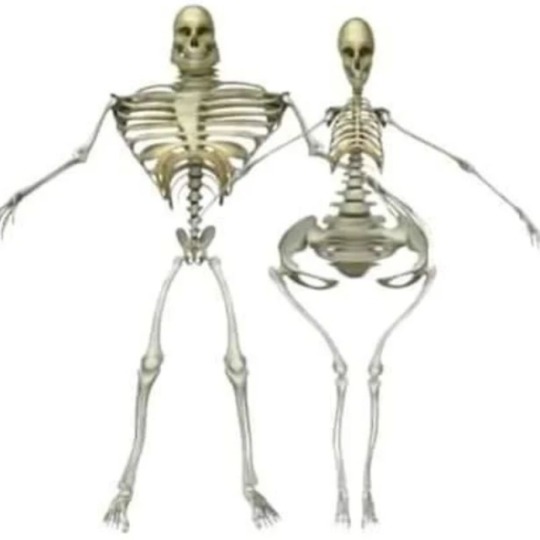
283 notes
·
View notes
Text
The contrast between Broodmother, and the fertility to produce an army of soldiers forced against her will, vs the anvil, and the inability to create any manmade life, so it must be stolen. Both are being used for such a twisted purpose, war, slavery, and the exploitation of women and men. The act of creation itself corrupted and done through force, while he true act of creation being based in love and motherhood.
"No mere smith, however skilled, has the power to create life"
Not to mention, Broodmother is entirely organic, as it is, opposite the anvil. The anvil can claim creation, but it is really transmutation. Broodmother can claim creation, but even Hespith calls it the darkspawn *remaking Laryn in their image*
Its just such a good trope that I've never seen in horror, and they make such good foils of each other one immediately after the other, how both darkspawn and greed corrupt even the most holy and well-intentioned acts. It makes sense when you consider the darkspawn are the Golden City's reflection of man's sins.
#broodmother#hespith#laryn#anvil of the void#branka#deep roads#golems#dwarves#orzammar#dragon age#dragon age origins#dao#dai#da2#bioware
190 notes
·
View notes
Text

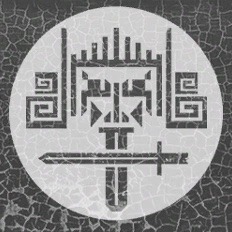
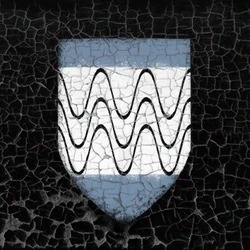
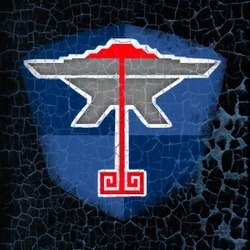
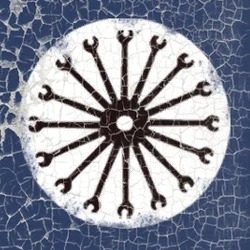
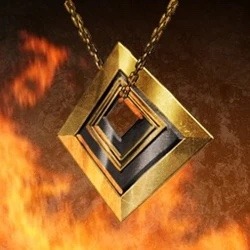


these are the dwarven heraldries we seem to have btw! :) from left to right they’re house aeducan, house astyth (the silent sisters), house harrowmont, house caridin (wow is that unsubtle), house branka, house ivo, the legion of the dead, and the carta
#i dont know where the wiki is getting the ivo one it says its from da2#orzammar#i love the aeducan and harrowmont ones#you’ve never seen ‘obsessed with ourselves’ and ‘lame as hell’ conveyed so quickly
42 notes
·
View notes
Text
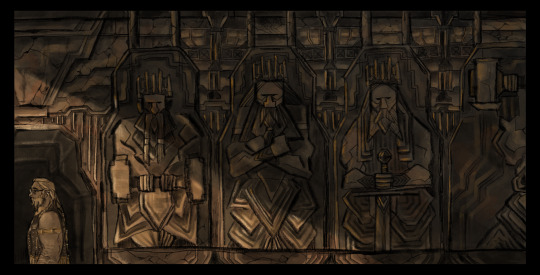
Line of kings
#dragon age#bioware#dragon age origins#dao#warden#grey warden#aeducan#orzammar#dwarves#my doodles#i worked SO long on this my god…anyway enjoy!#erwin
492 notes
·
View notes
Text
a tourist trap t-shirt but it says “i went to orzammar and all i got was the shit kicked out of me”
44 notes
·
View notes
Text
Lore: "Dwarves have low fertility and a low reproduction rate"
Aeducan, having one son before becoming a warden and another one after romancing Morrigan: "I am not bothered by your earthly concerns"
#dragon age#dragon age origins#aeducan#dragon age dwarves#house aeducan#orzammar#dao#da o#da:o#dragon age memes#dragon age meme#da origins#mardy#warden x morrigan#morriwarden#morrigan#morrigan dragon age#dragon age morrigan#kieran#kieran dragon age#dragon age kieran
141 notes
·
View notes
Text
Thinking out loud here, one of my favorite elements of dwarven culture is the existence of sacrifice as a shared understanding without really prizing austerity as a way of life. I know Orzammar is deeply fucked up and the caste system is indefensible, but something that I strengthens the hope for change there, despite everything, is a kind of honest hunger for life that seems to be part of dwarven ethos. They live a nearly eternal blight, many of them stalwart warriors nurtured into the inescapable duty of preserving the city for just a few years more, a few years more, like their ancestors before them. The smiths, the armourers, the artisans, the sculptors, the Shapers, all of them, regardless of how much they personally think of it, are part of this social contract to keep Orzammar on its feet. There's sacrifice involved, to be sure. To die in battle is a glorious thing for them. War is a fact of life for them. The Legion of the Dead literally partake in their own funerals to give themselves to Orzammar entirely. The Silent Sisters forego speech itself. The Deep Roads are full of the proof of so many sacrifices, many remembered and many forgotten.
Still, the dwarves are far from austere. Pragmatic they may be, but they don't glorify self-abnegation. They live and announce their existence, in towering statues and high ceilings and technology that pushes the bounds of the possible. They drink and feast and joke with abandon. They make art. They plan circles around each other to their own detriment. They're ambitious without apologizing for it. (Remember Rica telling Brosca, deep in the smoke-pits of Dust Town, that she believes she's meant for great things? Remember how you could agree, say you'll become Great, despite how hopeless and empty such an endeavour may seem? Hell, Remember Rica herself, navigating the pit of vipers that is the nobility so whichever way the wind blows, she comes out standing). Everyone from my Warden from Dust Town (even her Ultimate Sacrifice was an aspiration to Paragonhood, not an honest desire to die) to the King himself is driven by the possibility of life, glorious life. The worst of them, the cowards and traitors and tyrants, are often a perversion of that very desire to live and live well. Everyone wants to live and live well, of course, but I find the dwarves have a straightforward honesty about that desire, as if the perpetual blight at their heels and the many social pressures only strengthens their resolve, even with the magnitude of sacrifice that it demands. For all the reputation of Orzammar dwarves being grim or stodgy, I find them delightful for this. A hunger for life isn't "selfish" there, but welcome. I also wonder if this honesty has something to do with the stereotyping of them all as "greedy," among topsiders, because time is running out and life is far too short to hide your hunger.
#dragon age#orzammar#dont mind me honestly#i think theyll be alright really#i conceptualize a lot meaningful social transformation in orzammar honestly#i also think of the difference and similarities between how grey wardens conceptualize the blight and how dwarves do so
31 notes
·
View notes
Text
Varric Tethras - The Proud Dwarf
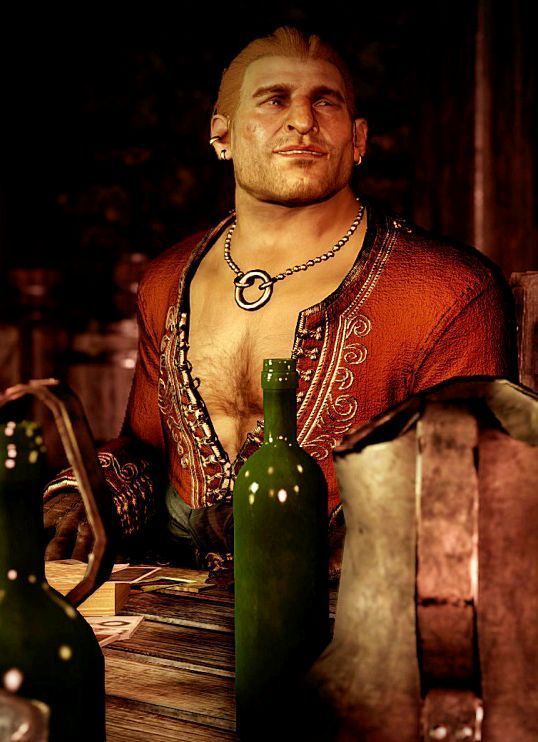
So it's not a big secret that the best companion Bioware ever created was Varric Tethras, the lovable rogue, crossbowman, author and handsome Viscount of Kirkwall.
There are ao many reasons to love Varric, but one I don't see much discussed, is the subtle, and contradictory relationship Varric has with his own race, the Dwarves of Thedas.
Varric makes it a point of always putting his seeming disdain for his own people out in the open, always making it clear how much he dislikes the traditional Dwarven culture, wqy of life and so on.
He describes Orzammar, one of the great wonders of the world as cramp tunnels filled with shit and body odor, he never fails to mention how much he hates the deep roads, and he often mocks dwarven pride at any opportunity with his usual wit and charm.
On the surface, Varric might seem like he has a lot in common with Sera and her racist views on all elvhen kind, but that really, really is not the case.
Because under that exterior of seeming disdain, is a man who both understands Dwarven Culture in all it's flaws, but also loves it and hates it in equal measures.
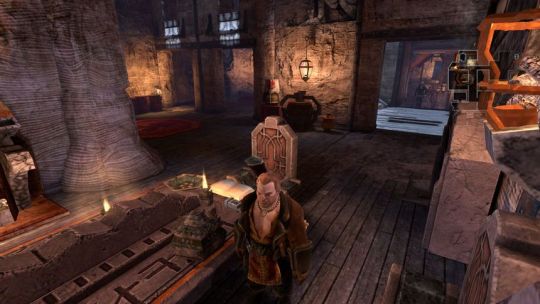
Varric has always made it clear how much he loved the Hanged man, and essentially made his room there his office, his real home away from the uber dwarfish merchant guild.
And do you know what he fills it with?
The dwarfiest architecture you can imagine. Varric has a dwarf table, a noble dwarf chair, dwarven artwork on the wall, and even a dwarven stone bed.
All expensive and traditional stuff which he would have had to had personally paid for to transport into this room out of his own pocket.
Varric for all his harsh words on the Dwarven people, WANTS to live in a home that looks utterly Dwarven.
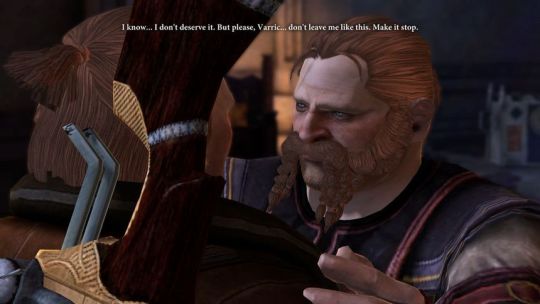
The most obvious moment that puts Varric's love for his dwaf ancestry on full display is of course the act 2 quest from da2, where he and an insane(temporary lucid) Bartrand has a heart to heart where both puts their real feelings on the tragedy of their situation on display.
Varric chastises Bartrand for in his madness having thrown away every bit of his dwarven nobility and honor on a stupid trinket, and Bartrand ends up begging his brother not to let house Tethras fall with him, in this display of utter madness and dishonor.
The entire thing is a deeply tragic display where the two brothers show that deapite all their differences, they really did love each other deeply, as well as the fact they had a shared love of their ancestry as Orzammar Nobility.
Of course Varric almost never comes out and says it nearly this clearly anywhere else, as showcased in another side quest where you give him back the Tethras family signet ring that Bartrand had to pawn to finance the expedition.
He doesn't come out and say it, instead focusing on the bad aspects of Orzammar in this quest, but unless hawke is rivaling him when he gives him the quest, varric has a huge approval boost in response to getting his family ring back, showing the thing really did mean a lot to him, despite his disparaging it and Orzammar in said quest.
Later, in Inquisition, Varric never misses a chance to badmouth Orzammar and tradition, but he reacts with incredible sadness at the prospect of Orzammar one day possibly falling.
When Solas asks him about Dwarven literature, and whether there is a lot of Dwarven tricksters, varric gives a smartass remark summing it up as Dwarves tend to write how they want the world to be, while humans write how they think the world is, eith the latter being clearly superior.
It's a good scene, but it has a deeper meaning that ties into Varric's deeper views on Dwarven culture.
Varric knows how Dwarves write, because he has read Dwarven liturature, and understands it completely as both a dwarf, a reader, and a writer, and how it in turn differs from human literature.
For all his grumbling on dwarves in Orzammar being obsessed with their ancestors, he himself is the exact same way as shown in legacy when you find the original Tethras and gives him to the stone, able to shortly remember every bit of his own family lore on the spot and being moved to tears by the tragedy of it all.
Varric defends both surface dwarves and Orzammar dwarves against Solas accusation that they have given up against the darkspawn threat, though in his usual way, he makes it out like surface dwarves are clearly superior.
Varric genuinely loves and cares about so much of Dwarven culture and history, and he understands it deeply.
Which in turn also is the reason he genuinely hates so much about it.
Like all of the DA2 companions, Varric has something he is deeply, deeply obsessed with, something that drives him as a person, and motivates his actions through the entire story. The difference between him and everyone else, is that this obsession never reached a conclusion, because Varric doesn't get to actually face it, and confront it.
That obsession is, of course, the Dwarven Merchant Guild.
Varric HATES the Dwarven Merchant guild, and though he uses his regular humor to portray it, in this case it's actually the opposite of the way he will always be critical of the Dwarven people. Because Varric hates the guild far, far more than he ever pretends to hate Orzammar.
Varric always talks of how shitty the guild is, how it embodies the absolute worst parts of dwarven culture, and essentially how it ruined Bartrand from ever being able to function as anything other than a cutthroat businessman. He time, and time, and time again, refuses to interact with the guild, breaks the law hard to not have to participate, and all in all cold shoulders them and their cutthroat culture completely.
There is a very important, significant moment in act 3, that is incredibly easy to miss, but completely recontextualizes varric's entire motivation for wanting the deep roads expedition.
Varric talks about the real reason why Bartrand wanted to go through with the expedition, of how it represented the one chance he had to get AWAY from the guild forever, just by being rich enough he no longer had to deal with them anymore.
Varric portrays it as Bartrand's big wish and motivation, hut it's incredibly obvious if one pays attention that this was a wish the two brothers actually shared, a mutual desire in the world. Which in turn is one of the reasons why Varric is so incredibly angry at his brother when he goes off the deep end due to the idol and betrays them.
Him and Bartrand got into this venture to finally, once and for all get out of having to deal with the worst parts of surface Dwarf society, and here his brother seemingly willingly turned his back on all of that, showing the only thing he ever cared about was pure greed.
In other words, everything both he and Bartrand hated about the Merchant Guild.
Varric hates the Caste system. He hates the division between surface and "regular" dwarves, and he thinks Orzammar's nobility has a collective stick up it's ass. And yet despite all of that, he loves the Dwarves. He loves the idea of nobility and the ideals it is supposed to represent, he loves Dwarven architecture, their grand ability to make shit, and the incredible grit and romanticism about the Dwarves long, unending struggle against the darkspawn.
The only part of Dwarven society Varric has no love for, is the Merchant Guild. It is Orzammar's nobility without anything resembling virtues, nobles who lost their caste, and yet still enforces a brutal hierarchy of blood, and cares for no ideals, no honor, no cause, except for the clink of money.
Varric is such a deep character, and I really wish that in the future, we get to see this aspect of him fleshed out even more.
#dragon age inquisition#varric tethras#meta#dragon age 2#dwarves#dwarf#orzammar#surface dwarves#castes#dwarven pride
43 notes
·
View notes
Text

"Vharen
Don't listen to what Harrowmont is telling you. His men haven't visited Dust Town in weeks- why should they? It's not like they're going to find anything new. Everybody who's been questioned had a different answer for where Rica was supposedly headed so either she's given them false information to cover her tracks or the brands are just making shit up in the hopes that they'll get a reward.
Face the facts, cousin: she's gone. Took what's left of the Brosca family and disappeared to the surface. They probably started going by new names. You're not gonna find her unless she decides to make contact someday. I know things haven't been easy between us since Bhelen's death, but I'm not telling you this to cause grief. I don't want you wasting the rest of your life in a hopeless search for someone who doesn't want to be found.
Be safe,
Piotin Aeducan"
-A letter found in the Warden-Commander's chambers at Vigil's Keep, tucked away in a desk drawer. The paper is creased and worn, like someone has been constantly re-reading it over the past several years.
#digital art#art#dragon age#dragon age fanart#fanart#dragon age origins#my art#dwarves#fantasy#rica brosca#karlah brosca#endrin jr#brosca#aeducan#orzammar#thedas#codex entry
23 notes
·
View notes
Text

Thedosian Calendars and Holidays
Thedas has twelve 30-day months and five holidays, or annums. which start at the beginning of the month. Their day lengths are contradictory if not unclear as one instance mentions 24-hour days while all the clocks we've seen in Orlais work in 8-hour increments. Though it should be noted that clocks are dwarven in invention and manufacturing according to lore.
While the Chantry calendar shares some similarities to the Gregorian calendar, due to the placement and functions the holidays in regards to what they mean to the common people; it falls more in line with some versions of medieval calendars, though not entirely. For the common folk in Thedas these universal holidays mark the change of the seasons: letting them know what weather to expect, when harvests must be finished, when to plant, and other seasonal work and activities.
Additionally, it is important to know that Thedas appears to be in the southern hemisphere. It is never explicitly stated in lore or by any of the devs, but the context clues of things such as Tevinter being to the "north" and Orlais and Ferelden making up "southern Thedas" are the most prominent pieces of evidence. Though I will note that sometimes the devs/writers have gotten this mixed up and have referenced things like "birds flown south for the winter".
Thedosian Calendars - General
Of all calendars in Thedas, we know only of three: Chantry, Elven, and Tevinter. For other prominent cultures, we know nothing about the Avvar, Chasind, Dwarven, and Qunari calendars. They are not mentioned in lore, but are likely systems they would have.
Thedas, in its entirety, has converted to the Chantry calendar after the Second Blight. It became the universal calendar, and it's season marking holidays became the five universal holidays - though this doesn't mean they are the only holidays in Thedas. It is also unclear as of now whether the sharing of names and holidays are all the Tevinter and Chantry calendars share. We do not know if that extends to format, twelve 30-day months, or other factors.
The elven calendar fell into disuse after the fall of Arlathan when Tevinter outlawed its uses and enslaved the elven people. Now, not much is known about how the ancient elves of Arlathan kept track of the passing of time. Only a few notable events have lasted through the centuries to be recorded by modern scholars.
While the Tevinter Imperium did follow the Orlesian Chantry Calendar at some in their history, after the schisms between the two Andrastian cults they chose to return to their original calendar that dated back to the foundation of the Imperium. It is from this calendar that the Chantry took inspiration. It is suggested that elves had some influence on the creation of the Tevinter calendar (though this is only mentioned in the Traveler's Guide in the Origins Collector's Edition Game Guide). The Tevinter calendar is where the high names of the months come from.
The Orlesian Chantry calendar adopted several things from the Tevinter calendar, including the adoption of some holidays dedicated to the worship of the Old Gods that overlapped with their own holidays, and in turn gave them new meaning. Additionally, it is the Tevinter calendar that we inherited the high names and from the Chantry calendar the low names of the months.
Months and Days of the Week
Months
Each month has two names:
a high name - used by scholars and courts
a low name - used primarily by common folk
Most codex and dates shown in Dragon Age use the low name even when it is written in the voice of a scholar or noble, so I have listed them below in Low/High name format.
Wintermarch / Verimensis
Guardian / Pluitanis
Drakonis / Nubulis
Cloudreach / Eluviesta
Bloomingtide / Molioris
Justinian / Ferventis
Solace / Solis
August / Matrinalis
Kingsway / Parvulis
Harvestmere / Frumentum
Firstfall / Umbralis
Haring / Cassus
If the Chantry calendar and by extension Tevinter calendar were to follow the same solar equivalent dates as the real world, the months would land as follows in accordance to the southern hemisphere:
Spring/Vernal Equinox: September 21-23 -> Guardian / Pluitanis 1st
Summer Solstice: December 21-23 -> Bloomingtide / Molioris 1st
Autumnal/Fall Equinox: March 21-23 -> August / Matrinalis 1st
Winter Solstice: June 21-23 -> Firstfall / Umbralis 1st
My only note about this is that Tevinter seems to be predominately a tropical climate that begins to encroach closer to the equator. In the real world, this would usually result in them using a lunar (or lunar-solar) calendar as their seasonal changes would be relatively minimal. Solar calendars are more typical in temperate regions as there are more seasonal changes and they're impacted more by the the decrease/increase of sunlight.
That said, Tevinter seems to follow a more solar calendar that made it an easy port for the rest of Thedas. The likely reason for this might have simply been to keep things simple, as it would make it a little easier to track.
Days
As stated before, the length of a day seems to be 24-hours, though the clocks seem to work in 8 hour increments. Additionally, from what we can tell, Thedas has the same days of the week that we do. Except, there has yet to be any mention of Monday or Wednesday.
Tuesday
Thursday
Friday
Saturday
Sunday
Holidays, Celebrations, Ceremonies, and Festivals
It is noted that there are more holidays in the world than the ones listed in universal holidays. The following holidays/festivals/feasts listed are predominately human and surface, there isn't much on Orzammar and their holidays or celebrations nor the Dalish.
Universal Holidays
These are the holidays implemented by the Orlesian Chantry. These are the holidays called annums. With the exception of First Day, they typically mark the changes of the seasons. All of them fall at the beginning of the month.
With that in mind, based on how they line up with the solstices and equinox they seem to be roughly floating holidays that may range from the 1st to 3rd of the month.
Something to note though, is that the holidays were once mentioned to fall outside of any month. Which would align them more towards the special days you would see in a lunar calendar or some forms of historical calendars. However, this arrangement of the holidays hasn't been mentioned since the (Collector's Edition Prima Guide for Dragon Age Origins in the Traveler's Guide).
First Day, celebrated on the first day of Wintermarch / Verimensis
A traditional start of the year that involves the practice of visiting neighbors and family as well as gathering in town to commemorate the year past.
In remote areas this holiday was once the annual check to ensure everyone was alive.
In some areas, such as Serault in Orlais, it is customary to eat chicken on First Day.
Wintersend, celebrated at the beginning of Guardian / Pluitanis
(Potential Spring / Vernal Equinox)
Previously called "Urthalis" and dedicated to the Old God of Beauty, Urthemiel.
Currently a holiday that is the celebration of the Maker.
It stands for the end of winter in many areas.
In the Tevinter, coincides with tourneys and contests at the Proving Grounds in Minrathous.
In the south, the holiday became the day for trade and theater.
In some areas, it is also the day for arranging marriages.
Some places, like Orlais, hold Wintersend Balls during the season.
Summerday, celebrated at the beginning of Bloomingtide / Molioris
(Summer Solstice)
Previously called "Andoralis" it was a holiday dedicated to the Old God of Unity, Andoral.
Universally celebrated as the beginning of Summer.
For Andrastians, there is the practice where children ready to come of age don white tunics and gowns before joining a procession that crosses the settlement to the local Chantry. They are then taught the responsibilities of adulthood.
In Orlais, this is a particularly holy holiday.
In some places, this festival is described as particularly showy. To where it would be considered an appropriate level of extravagance to welcome a monarch or ruler.
All Souls Day, celebrated at the beginning of August / Matrinalis.
(Potential Autumnal / Fall Equinox)
Previously it was called "Funalis" and was a holiday dedicated to the Old God of Silence, Dumat.
The Chantry uses the holiday to commemorate the death of Andraste, they will light public fires and put on plays that depict her death.
This holiday is also spent in other areas as a day in remembrance of the dead.
In the northern areas of Thedas, people will dress as spirits and parade through the streets after midnight.
Satinalia, celebrated at the beginning of Firstfall / Umbralis
(Winter Solstice)
This holiday was originally dedicated to the Old God of Chaos, Zazikel. It now is more attributed to the second moon of Thedas, Satina.
Customary celebration includes wearing masks, naming the town fool as ruler for a day, and wild celebrations. In more pious areas, it is simply a large feast and the giving of gifts.
Antiva celebrates this for a week or more, followed by a week of fasting.
Feastday is part of the Satinalia celebration, incorporating the gifts and pranks practices of the holiday. It is unclear if this term is just for Ferelden.
Ferelden celebrates by serving a specific dish, Fluffy Mackerel Pudding, during the holiday.
Regional Holidays, Events, and Festivals
Allsmeet (Rivain)
An event that happens twice a year where the village seers travel to Dairsmuid to meet in council, gorge trade agreements, and pledge loyalty to the Rivaini queen publicly. These are also times where people will attempt to settle old feuds, but there are feasts, gift-giving ceremonies, musical contests, and other such activities. It lasts a few days.
Andraste's Day
An undefined holiday. One for Andrastians but unclear if it is universal to all Andrastian cults, regional to those following the Orlesian Chantry, or regional to Ferelden.
It is a holiday in which family will come to visit.
Anniversary of Archon Hessarian's Death (Tevinter)
A religious holiday, usually accompanied by an additional feast day for Visitations.
Visitations is a feast celebration of Andraste appearing in the dreams of mages when she crossed into the fade. Celebrated in Tevinter.
Arlathvhen (Dalish)
Its name means "for love of the people".
A celebration of the old ways while lore keepers exchange stories and knowledge, but the gathered Dalish also recount and discuss the sad lessons of the destruction of Arlathan and the Dales.
Barnack Festival (Orzammar)
An undefined festival mentioned by Oghren.
Celebratory Proving (Orzammar)
A type of proving held to celebrate an event.
Victors of these provings are rewarded with ceremonial items.
Commission Day (Orzammar)
A celebration for when one receives their military placement, or commission.
Unclear if this celebration is for all nobility of families of import or if it is restricted to the royal family.
Commission Proving (Orzammar)
A proving done during the commission celebration. It is in honor of an individual gaining a leadership position.
It is not clear if this proving and celebration is just for the royal family.
Coronation of the Divine (Chantry)
It is mentioned that when the first Divine was chosen, the festivities lasted a full year.
It is unclear if such celebrations happen every year in honor of the first Divine.
If it were an annual holiday, it is unclear if it would be only an Orlesian Chantry event or if it is also something that was celebrated in the Tevinter Imperium. Though considering the relationships between the two sects, it is possible that they adopted it in the Imperium but in celebration of their first Divine.
If chosen as Divine, Cassandra mentions that "They would love to bury me in ceremony for my coronation". Suggesting that there is at least some level of grandness that extends past a straight forward ceremony for crowning the Divine.
Drinking Festival (General)
Undefined if this is an Antivan specific festival, a universal one, or a joke. It is mentioned by Zevran.
Memorial Proving (Orzammar)
A type of proving done during celebration and honor of an individual receiving their military role.
Groundbreaking Festival (Universal)
Held much like events in real life, where they celebrate a building - such as a fort, castle, ect. - being built.
Grand Tourney (Free Marches/Nevarra)
A yearly event described as part circus, part tournament, and part festival. It allows contests, feats of strength, food, performers, and merriment. It travels around the Free Marches, and occasionally outside of it.
It is an event that many are aware of and Orlesian nobles are particularly inclined and encouraged by their families to participate in.
According to the Dragon Age Tabletop RPG (ttrpg), Orzammar sent warrior representatives to the Grand Tourney one year. It is unknown if they continued to do so or if this is held up in current lore.
Harvest Festival (Universal)
Undefined, but mentioned that Honnleath celebrates such an event.
Vinter, a Ferelden town mentioned in the ttrpg, celebrates the year's harvest and bounty in an annual event that lasts for several days. This is a major event of merriment and trade, but also open to the Dalish as well.
Hunt Ball (Nevarra)
Balls held in the winter, a lingering custom from when Nevarra used to have annual dragon hunts.
Memorial Proving (Orzammar)
A type of proving done to honor the memory of a dwarf of high stature.
Naming Day (Universal)
Separate from birthdays, there is little information on these parties outside that they occur.
Mentioned by both dwarves in Orzammar as well as found in a box of invitations on the surface.
Solstice Celebrations (Universal)
Avvar have alters dedicated to their favored hold-dieties, they house sacred relic that aligns with the rising sun on the Winter Solstice.
Honnleath celebrates the winter solstice.
Undefined as to which, but stated that the Chantry hold them, at one point for six consecutive years in Cumberland. This seems to be separate from the four holidays that mark the change of the seasons.
In some areas they celebrate the solstices with dinner parties. Aveline throws one. It isn't clear if this is simply a Fereldan practice or universal.
Summer Festival (Orlais)
A general festival that differs by region.
Celene mentions how youths participate in tests of skill though in heavily padded tunics and blunted blades.
Winterfest (Unknown)
An undescribed event/holiday mentioned by Dorian. He says he was "hoping for a lively Winterfest gift."
Possibly a regional holiday in Tevinter.
Feasts
Feast of Ascension (Orlais)
Undefined if it is a common celebration, nor what exactly the purpose is.
Feast of Urthemiel (Tevinter, Ancient)
A feast that spanned a total of twelve days, it was the grandest celebration of the year during its time. Celebrated at the height of the Imperium when they worshiped the Old Gods.
Unclear if this feast was part of the Urthalis (now known as Wintersend).
Hivernal Feast (Orlais)
Originating in the highlands of Orlais during the early days of the nation. Groups would go out and hunt Hivernals, on a successful hunt they would return and feast before salting the dragon meat and using the rest for potions, armor, and other supplies to help them last the winter. It is a feast still celebrated in some areas of Orlais.
Noble Feast (Orzammar)
A feast had during a celebration, typically one honoring an individual for their military accomplishments or a service done for Orzammar.
Also used to honor the mercy and/or martial skill of a commander.
General Ceremonies
Uthenera Ceremony (Arlathan)
Where an elder's long life and all their contributions to the elven people was celebrated before they moved on to the next step of waking slumber.
Harvest Ball (General)
A ball held during the harvest season.
Unclear how common or well spread these balls are, but they are mentioned as occurring in places such as Ostwick.
Wedding Ceremony (General)
Can be especially lavish for rulers, nobility, or people of import.
Typically overseen by Chantry Mothers in southern Thedas.
Unnamed Holidays, Ceremonies, Feasts, and Festivals
A religious holiday in the Imperium with a ceremony to mark the day a spell is cast to renew the Eternal Flame that is lit and continuously burns in every chantry in the Imperium.
A holiday in the Imperium that celebrates the death of Joyous II, Orlesian Chantry Divine. It is unclear if this holiday is still celebrated.
At Adamant Fortress the residents would have a celebration which included a feast on the day of the first snow fall. Traditions include the residents putting up wreaths, dancing, and other events.
There is a festival that includes a turkey. But there is little information outside of the line mentioning "festival turkey".
In some Dalish clans, there is a special ceremony for when a Keeper anoints a mage as their first.
Miscellaneous and Trivia
There is a practice of giving gifts on the solstice mentioned by Luka.
People have both a Wintersend gift list as well as Satinalia gift list. It is unclear if the Wintersend gift list is a regional/cultural specific practice, a universal one, or if it was simply confused with Satinalia.
Birthdays while separate from Name days are both celebrated universally.
The Qun does not have holidays or annual festivals. They will have celebrations but usually in response to a death in service to the Qun by an individual who did a great deed. They have a celebration that allows for unabashed revelry; this includes drinking, public chanting, and even meditations are abandoned.
The term "holiday", "on holiday", and "family holiday" are used by those in Thedas as opposed to vacation or the like.
Fluffy Mackerel Pudding, while a Fereldan traditional dish, is a recipe from the 1974 Weight Watchers.
Sources:
BioWare Blog
Weight Watchers: Fluffy Mackerel Pudding
Dragon Age Origins
Dragon Age 2
Dragon Age Inquisition
Dragon Age Inquisition Multiplayer
Dragon Age The Last Court
Dragon Age Tabletop
Dragon Age Tabletop Blood in Ferelden
Dragon Age Origins Official Prima Guide
Dragon Age Masked Empire
Dragon Age Asunder
Dragon Age Tevinter Nights
World of Thedas Vol 1
World of Thedas Vol 2
Origins
Codex: Archdemon
Codex: Feast Day Fish
A Note from the Honnleath Village Council
Dragon Age 2
Codex: Chest of Unanswered Invitations
Codex: Notes on the Avvar Sky Cult
Codex: Thedas Calendar
Inquisition
Codex: Mad Emperor Reville
War Table Mission: A Favor Returned
War Table Mission: Rescue the Spy
The Last Court
Your Bailiff is Attacked
Want to support this blog? Check out my ko-fi!
#dragon age#da worldbuilding#dragon age meta#writing reference#da writing reference#writing reference: calendar#writing reference: holidays#reference: holidays#reference: calendar#world building wednesday#long post#my meta#chantry#orzammar#dalish#ferelden#orlais#antiva
83 notes
·
View notes
Text
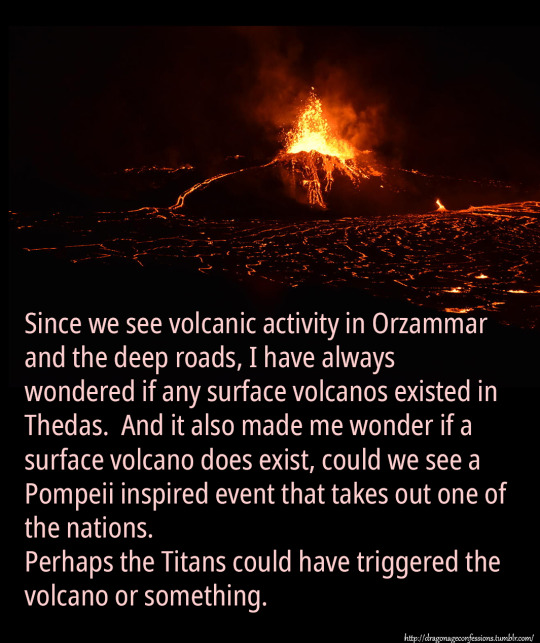
CONFESSION:
Since we see volcanic activity in Orzammar and the deep roads, I have always wondered if any surface volcanos existed in Thedas. And it also made me wonder if a surface volcano does exist, could we see a Pompeii inspired event that takes out one of the nations. Perhaps the Titans could have triggered the volcano or something.
67 notes
·
View notes